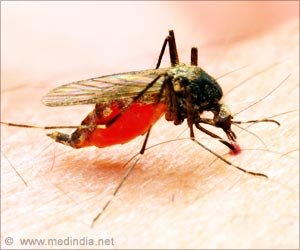Eliminate Dengue With Wolbachia Infected Mosquitoes

More than 2.5 billion people live in areas afflicted by dengue fever, a mosquito-borne viral disease that is increasing at alarming rates in tropical and subtropical countries.
Suppression efforts have mainly focused on mosquito control, but an international, non-profit research collaboration, the Eliminate Dengue Program, is trailing a new approach: harnessing bacteria that infect mosquitoes and reduce their capacity to transmit viruses.
Advertisement
The researchers released adult Aedes aegypti mosquitoes infected with Wolbachia bacteria in three areas adjacent to suitable mosquito habitat in Cairns, Queensland.
Two of the sites were relatively large (about 1 square kilometer and half a square kilometer, respectively), while the third was smaller (about a tenth of a square kilometer), and received more than 130,000; 286,000; and 35,000 Wolbachia-infected mosquitoes, respectively.
The researchers tracked the spread of Wolbachia through mosquito populations over two years by trapping and testing them for the bacteria.
Turelli and colleagues found that Wolbachia-infected mosquitoes spread at about 100-200 meters per year in the larger sites, but there was little evidence of such spread in the smaller area even after two years. This suggests that as long as the introduction sites are large enough strategic releases can transform mosquito populations in cities.
While slow, the spread in the larger sites was generally steady. However, the researchers also found that spread could be impeded by barriers to mosquito movement, which could include roads, rivers and forests. This suggests that local barriers to mosquito dispersal should be taken into account when determining how many releases of Wolbachia-infected mosquitoes are required.
Source: Eurekalert
Source link
#Eliminate #Dengue #Wolbachia #Infected #Mosquitoes



